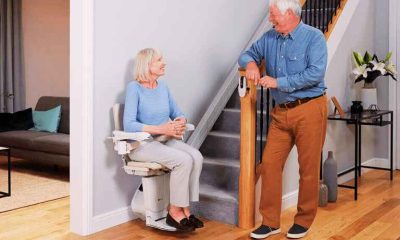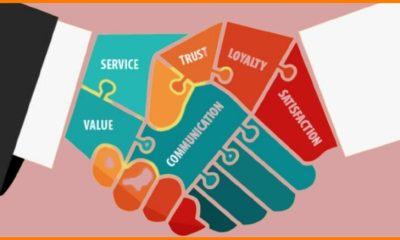Health
Mastering AG-PCNP psychomotor skills for optimal care
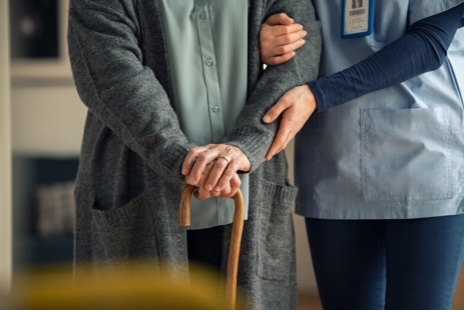
Adult-gerontology primary care nurse practitioners (AG-PCNPs) know that psychomotor skills are at the heart of their practice. Specifically, the ability to perform physical examinations, administer medications accurately, and handle diagnostic procedures are big parts of their role. Each of the skills we’ll discuss today is equally important, and when they’re all mastered, the end result is an AG-PCNP who is able to thrive in their role.
The life of an AG-PCNP
Before drilling down into specific skills, let’s first take a look at what the role of an AG-PCNP actually is. Essentially, it’s a role that bridges the gap between nursing and medical care, and it’s specifically tailored to adults and the elderly. The role involves comprehensive patient management, from initial assessment to diagnosis, treatment, and follow-up care.
They start their day reviewing charts and preparing for rounds. They will actively move through clinical settings and conduct thorough physical examinations. They check abdomens to detect even subtle changes or perform complicated joint injections that demand precision.
The patients they see are diverse but are unified by their stage in life. They’re adults with complex health needs that have often been exacerbated by aging. AG-PCNPs assess the full picture of patients’ health situations and often have to manage multifaceted conditions such as diabetes or heart disease. At the same time, they take into consideration age-specific issues such as mobility challenges or cognitive decline.
Throughout their workday, they will collaborate with physicians, therapists, dietitians, social workers, and healthcare professionals of many other disciplines. This collaboration could be as simple as aligning on a care plan, or it might involve working together on more complicated tasks such as catheterizations or biopsies. Throughout all of these parts of the role, strong psychomotor coordination is required.
Conducting physical examinations
When assessing patients, especially older adults, you must fine-tune your approach. These examinations are more than just a routine check-up. They require an attentive eye and skillful hands that can identify even subtle changes or concerns.
Combining both diagnostic technology with traditional hands-on techniques can be a good approach. You may use Doppler devices to evaluate heart health or employ different tools for capturing detailed images of skin lesions. These technologies can complement your palpation and observational skills and provide you with more information to make a diagnosis.
Neurological exams on elderly patients are especially important, but they must be approached with caution. Your expertise will allow you to differentiate between normal age-related changes and non-normal ones. Tasks such as reflex testing and coordination assessments are common in these types of exams.
Mastering diagnostic procedures
To master diagnostic procedures, you need a deep understanding of lab results and imaging studies. You must be able to read between the lines, recognizing not just the obvious, overt signs, but also the subtle indicators that something is wrong. The tools that you use are extremely valuable, but how to interpret the results is more important.
Advanced biopsy techniques are another key skill that you’ll require. This is particularly true when it comes to cancer screenings, where early detection can make all the difference. Familiarize yourself with different types of biopsy methods and focus on obtaining tissue samples both safely and effectively while causing as little discomfort to patients as possible. At the risk of reiterating the same point, interpretation is everything. You must learn how to interpret these samples accurately.
When you’re conducting heart-related diagnostic procedures, you’ll typically be using electrocardiograms (ECGs) and stress tests. You’ll need to understand different ECG patterns and what they mean. This will help you to identify arrhythmias, ischemic changes, or other cardiac anomalies. You can then use this information to identify anything that requires immediate attention or needs a long-term management strategy.
Diagnostics and procedures are such an important part of gerontology that many schools will focus part of their curriculum entirely on this area. The University of Indianapolis is one of these schools, with its online AGNP program featuring a full class on diagnostics and procedures. The program can be completed in just 32 months, and is conducted in a part-time online format to accommodate working nurses.
Precise medication administration
Another key skill for AG-PCNPs is being able to precisely administer medication. This is not just about dosage, but also about management and educating patients. Elderly patients often take multiple medications at the same time. To manage this, you must have strategies in place to review current prescriptions regularly. Prioritize the medications that are necessary and discontinue those that may no longer be beneficial or could cause adverse interactions.
When it comes to administering injections, you aim for techniques that reduce discomfort as much as possible without sacrificing the absorption of the medicine. This is true of both subcutaneous and intramuscular injections. This could involve using the smallest gauge needle possible for the medication or rotating through different injection sites to prevent tissue damage. Applying gentle pressure after the injection without massaging the area can be a good idea, too.
When dealing with high-risk medications such as anticoagulants, insulin, and chemo drugs, you must be switched on. The high power of these drugs means that there can be big potential side effects if they aren’t administered correctly. You need a thorough understanding of how these drugs work, and you must always double-check calculations for dosages every time they’re prescribed. Make sure to implement safety checks before dispensing these medications, as well. This includes even basic things such as verifying patient identity and cross-referencing with their medical records.
Minor gerontology procedures
Something else you will find yourself doing is carrying out minor procedures that can significantly impact patient comfort and recovery. One example is addressing laceration repairs, and this is where your expertise in wound closure techniques comes to the forefront. The art of suture selection and placement is key. It’s not just about closing a gap but doing so in a way that promotes healing and discourages scarring. Some of the techniques you will need to master for this task include simple interrupted, mattress, and subcuticular stitches.
Joint aspirations and injections are other minor procedures that demand precision. Often, you’ll be doing this when treating patients with arthritis, and their pain relief will depend on how accurate and skilled you are at these procedures. Tissues around the joint may be inflamed, and you must navigate this without causing additional discomfort or damage to the joint structure. As well as having a steady hand, you’ll need a strong knowledge of anatomy to guide each needle placement as you deliver medication or take out fluid from the patient.
We’ve already mentioned biopsies once, but cryotherapy for wart treatment and lesion removals are two other examples of dermatological procedures that are performed regularly. These tasks are delicate, too, and you need to be both gentle and confident. The margins must be cleared while also making sure not to cause too much cosmetic damage. Attention to detail is very important for these procedures.
Geriatric wound care
Some older adults will develop chronic wounds such as ulcers and other non-healing injuries. These types of things are more common as our skin loses its elasticity and blood circulation diminishes as we age. AG-PCNPs need to understand the complexities of these conditions in order to be able to take care of them.
Infection control is probably the most important part of geriatric wound care. You must be vigilant about cleanliness and follow all protocols around reducing the risk of infection. An infection can often develop into something significantly worse than the wound itself, so this must be prioritized. You’ll need to assess the wounds regularly for signs of infection, too.
Selecting the right dressings is equally important. Not all products will suit every type of wound. For example, some dressings maintain a moist environment that is ideal for tissue regeneration, whereas others absorb the excess fluid or protect against bacterial contamination. You’ll need a strong understanding of what type of wound the patient has and which type of dressing makes the most sense to treat it.
The process of debridement is also important. This is where you remove dead skin or infected tissue from a patient. As you can imagine, this is a delicate process and needs to be executed skillfully. Sometimes this will include using autolytic methods, which means using dressings that are designed to self-debride.
Geriatric-specific psychomotor skills
As we age, our bodies begin to decline in different ways. This does not happen at the same time or pace for each person, which is why AG-PCNPs must be able to evaluate all of these different skills and understand what signs to look for. One example of a significant concern for older adults is the risk of falls. AG-PCNPs can focus on risk assessment and prevention by evaluating gait stability, muscle strength, and balance. They can use tools such as the Timed Up and Go (TUG) test to objectively measure mobility risks and implement any relevant interventions as needed.
When patients do require mobility aids, they also need the knowledge of how to use them correctly. This is extremely important not just for their safety, but for allowing them to maintain their independence, too. You can demonstrate how to safely get by in different terrains using walkers or canes, making sure that the patient understands and feels comfortable. For patients requiring wheelchairs, guide them through how to use them correctly and focus on ergonomics so that new injuries don’t occur.
Psychomotor skills related to our senses are something else that begins to diminish with age. As an AG-PCNP, you’ll need to have strategies in place to change your practice when dealing with patients with sensory impairments. If a patient has problems with their vision or hearing, you might need to adapt your communication style. This could be as simple as speaking with a louder voice when dealing with patients who have poor hearing.
Sometimes patients may have different forms of dementia, and this will require very patient and skillful forms of care. This could mean simplifying instructions during examinations and establishing a routine that minimizes anxiety for these patients. Use nonverbal cues as needed and always approach from the front where you can be seen clearly to avoid startling them.
Chronic disease management
Chronic diseases are something that most healthcare practitioners will have to deal with, and this is also true of gerontology. When dealing with older patients, you’ll need to focus on both technical skills and holistic plans that are very specific to each patient.
Chronic diseases that you’ll come across most commonly include diabetes, COPD, and hypertension. Each of these involves regular assessments to track the progression of the disease and how effective the treatments have been. You’ll frequently use glucometers to check blood sugar levels in diabetic patients or employ spirometry testing for those with COPD to measure their lung function. You’ll also find yourself regularly using blood pressure cuffs to evaluate patients with hypertension.
Educating your patients is an important part of this management, too. They need to know how to correctly use home monitoring devices, and this can empower them to actively participate in their own care. Simply demonstrating the proper technique for checking blood glucose or blood pressure not only enhances your patient’s autonomy but also helps ensure that the measurements they report back to you are accurate.
Beyond medication management, integrating diet, exercise, and lifestyle modifications is a big part of treating chronic illnesses. You’ll guide your patients through dietary changes that make sense to their specific needs, as well as recommend appropriate changes to their physical activity. This will be highly individualized based on any mobility limitations that they may have.
Conclusion
In many respects, the role of an AG-PCNP is an all-encompassing one. You can think of yourself as a guardian to the elderly, taking into account everything about their life and how that interacts with their health. Most of the skills you need to do this job well involve psychomotor skills, and they must be focused on. As the world’s population is becoming older, this role will only become even more important, making it the perfect choice for a long career in healthcare.
Health
Make a Difference in Lives by Learning How to Donate Plasma
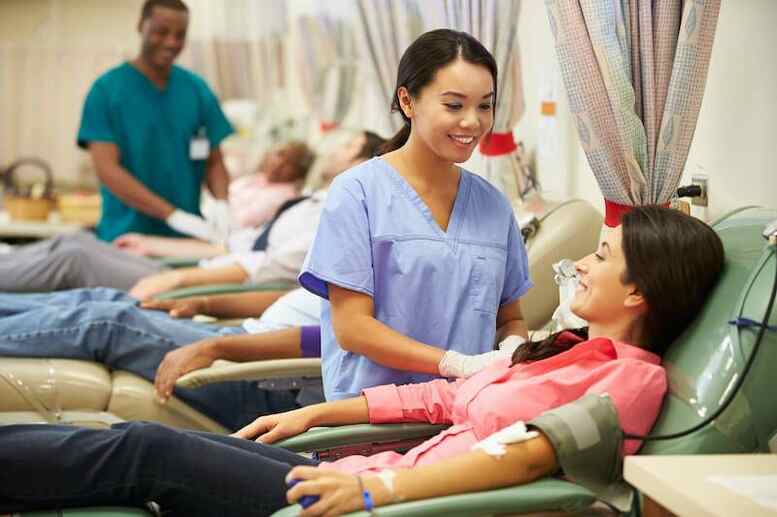

Understanding Plasma: The Liquid Gold of Your Body
The Science Behind Plasma: What Makes It So Special?
Plasma, constituting approximately 55% of total blood volume, is often referred to as the “liquid gold” of the body. Its golden color is derived from the various proteins and nutrients dissolved within it. Composed mainly of water (about 90%), plasma also contains essential proteins, hormones, electrolytes, and waste products. The most critical proteins, albumin, globulins, and fibrinogen, play pivotal roles in maintaining osmotic pressure, immune responses, and blood clotting, respectively. Plasma serves not only as a transport medium for these proteins and cellular components but also delivers vital nutrients and hormones throughout the body. The unique composition of plasma allows it to perform diverse functions that are integral to human health, making it an invaluable resource in the medical field.
The Role of Plasma in Health and Medicine
In the realm of healthcare, plasma has a multitude of applications. Its derivatives, known as clotting factors, are used in treating hemophilia, a condition that impairs the body’s ability to control bleeding. Moreover, immunoglobulins extracted from plasma are vital in fighting infections and boosting the immune system in immunocompromised patients. Intravenous immunoglobulin therapy is used for patients with autoimmune diseases, helping to modulate and stabilize the immune response. Plasma donation is also crucial in developing therapies for conditions like burns, shock, and trauma, making it a lifeline in critical care situations. The ability to harness the properties of plasma for medical interventions underscores its significance, highlighting the urgent need for plasma donors to support these life-saving treatments.
Myths vs. Facts: Common Misconceptions About Plasma
Despite its importance, there are several myths surrounding plasma donation that can deter potential donors. A common misconception is that donating plasma is painful and excessively time-consuming. In reality, while there is a slight discomfort associated with the initial needle insertion, many donors report that the process is only minimally uncomfortable and takes between 45 minutes to an hour. Another myth is that plasma donation and blood donation are the same; however, they differ significantly. Plasma is extracted via a process called apheresis, where blood is drawn, the plasma is separated, and the remaining components are returned to the donor. Additionally, there is a fear that donating plasma might deplete vital nutrients. On the contrary, the body regenerates plasma rapidly, usually within 24-48 hours, and as a result, regular donation can contribute to a healthy lifestyle. Dispelling these misconceptions is essential for encouraging participation in plasma donation, a vital act that can save lives.
Becoming a Plasma Donor: Your Step-by-Step Guide
Eligibility Requirements: Are You Ready to Roll Up Your Sleeves?
Before you roll up your sleeves to donate plasma, it’s essential to understand the eligibility criteria established by various health organizations. Generally, donors must be at least 18 years old and weigh a minimum of 110 pounds (50 kg). This helps ensure that the donation is safe for both the donor and the recipient. Potential donors must also pass a medical screening, including a health history questionnaire and physical examination, to check for conditions that might disqualify them from donating, such as certain chronic diseases or recent infections. Additionally, individuals with a history of drug abuse or multiple sexual partners may face restrictions. It’s vital for potential donors to be honest during the screening process, as this ensures their safety and that of those receiving the plasma. Being aware of these requirements prepares individuals for the process and encourages a higher rate of successful donations.
The Donation Process: What to Expect When You Donate
Understanding the donation process can significantly alleviate any apprehensions about plasma donation. When you arrive at a plasma donation center, you’ll first check in and complete a detailed health questionnaire. Once your eligibility is determined, you’ll undergo a brief physical examination where healthcare professionals will check your heart rate, blood pressure, and hemoglobin levels. If you qualify, you’ll be seated comfortably in a donation chair, and a healthcare provider will clean your insertion site and insert a sterile needle into your arm. The apheresis machine then draws your blood, separating the plasma from other blood components. This process typically lasts 30 to 45 minutes, during which you are encouraged to relax, perhaps watching a movie or browsing the internet. After the donation, you’ll receive fluids and snacks to help replenish your energy. The professionalism and care exhibited throughout the process ensure that it is both safe and efficient, reinforcing the vital role each donor plays in saving lives through their generous contributions.
Preparing for Your Donation: Tips for a Smooth Experience
Preparation is key to ensuring a smooth plasma donation experience. Staying hydrated in the days leading up to your donation is crucial, as it helps increase blood volume and makes the vein selection process much easier. Drinking water, avoiding salty foods, and ensuring you have a balanced meal before your appointment are essential tips. Additionally, it is advisable to avoid alcohol and strenuous physical activities for 24 hours prior. Wearing comfortable clothing that allows easy access to your arms can also make the experience more comfortable. Bringing a book or music can help distract you during the donation process. Finally, don’t hesitate to ask the staff any questions you have about the procedure; they’re trained to support you and ensure your experience is as pleasant as possible.
The Impact of Plasma Donation: Changing Lives One Drop at a Time
Real Stories: How Plasma Donations Save Lives
The impact of plasma donation can be profoundly illustrated through real-life stories. For instance, consider a young boy named Alex suffering from hemophilia, who relies on clotting factor derived from plasma to lead a normal life. Due to the dedication of volunteer donors, Alex can participate in school activities and spend time with friends without constantly fearing severe bleeding incidents. Another inspiring example is that of Janet, a burn survivor. After a tragic accident that left her with extensive injuries, Janet was able to receive life-saving treatments that included plasma-derived therapies. The collective contributions of thousands of plasma donors nationwide ensure that stories like Alex’s and Janet’s become possible. These narratives emphasize the critical need for plasma donors, illustrating how one person’s act of generosity can create ripples of hope and healing across countless lives.
The Blood Plasma Shortage: Why Your Contribution Matters
As the demand for plasma-derived therapies continues to rise, so does the urgency to replenish the supply. According to recent studies, the United States is facing a significant blood plasma shortage, exacerbated by the increase in autoimmune and rare diseases that require ongoing treatments. Each year, millions of patients rely on these treatments, with around 70% of plasma being used to treat chronic and complex conditions. The current supply chain challenges mean that many therapies are at risk of being disrupted, threatening the health and lives of those who depend on them. By donating plasma, you play a vital role in combating this shortage, ensuring that hospitals have access to the necessary resources to treat patients effectively. Your contributions can literally mean the difference between life and death for individuals waiting for essential therapies.
You’re Not Just Giving: The Health Benefits of Donating Plasma
While the primary motivation for donating plasma is to help others, it also offers notable health benefits for the donor. Studies have shown that regular plasma donation can lead to improved cardiovascular health and lower blood pressure. The act of donating promotes the rapid regeneration of new plasma, stimulating the body’s natural processes and encouraging overall health. Additionally, many donors report feeling a sense of accomplishment and fulfillment from contributing to the greater good, which can enhance mental well-being. Donating plasma can also serve as a gentle reminder for individuals to maintain healthy lifestyles, as eligibility often requires donors to be in good health. This mutual benefit reinforces the notion that plasma donation is indeed a win-win scenario—supporting both the health of the recipient and the donor.
Getting Involved Beyond Donation: Join the Plasma Community
Advocacy and Awareness: Spreading the Word About Plasma Donation
Supporting plasma donation extends beyond just the act of giving; it’s also about raising awareness and advocating for its importance within your community. Advocating for plasma donation can take many forms, from participating in local awareness campaigns to hosting informational sessions. By sharing your experiences and the benefits of plasma donation, you can inspire others to join the cause. Utilizing social media platforms to share stories, statistics, and personal motivations can significantly impact public perception of plasma donation and its critical role in healthcare. Informing friends and family about local donation centers, or even organizing group donations, can create a community spirit around plasma donation, fostering a culture of giving that extends far beyond individual contributions. Your advocacy efforts can contribute to a more informed and engaged community, ensuring larger support for plasma donation initiatives.
Volunteering and Fundraising: How to Make a Broader Impact
Beyond donating plasma, there are numerous ways to support the cause through volunteering and fundraising efforts. Many plasma donation centers rely on volunteers to assist with logistics, educational outreach, and community events, providing a flexible opportunity for individuals to contribute based on their availability and skills. Fundraising initiatives, such as creating campaigns to support local donation centers or organizing charity runs, can raise awareness while also generating funds for essential operations, such as equipment purchases and community outreach programs. Collaborating with local businesses to sponsor events or challenges can amplify your efforts while building strong community partnerships. By leveraging your unique talents and resources, you can significantly enhance the visibility of plasma donation efforts, ultimately leading to a more robust donor base and increased support for life-saving therapies.
Resources for Donors: Connecting with Plasma Donation Centers
Connecting with your local plasma donation center is essential for making the most out of your donation experience. Many organizations have established websites where potential donors can find information about eligibility requirements, the donation process, and upcoming events. Utilizing resources such as the American Red Cross or the Plasma Protein Therapeutics Association can provide additional insights into where and how you can get involved. Additionally, social media groups and community forums can serve as platforms for donor experiences, peer support, and educational resources. Many centers also offer workshops and informational seminars aimed at educating prospective donors about the plasma donation experience and its importance in the medical field. Taking advantage of these resources not only enriches your understanding but also strengthens the plasma donation community as a whole.
Read More: Jacqulyn Elizabeth Hanley
Health
Combat Allergies with Smart Supplement Choices


Millions of people grapple with seasonal or year-round allergies, often turning to supplements to complement conventional treatments. With a growing range of products targeting those whose noses can never rest, hoping to finally get some relief, they often come away disappointed after stumbling upon ineffective formulations. Professional-grade supplements, though—those designed for immune system support and reducing histamine responses—stand out in terms of effectiveness. The trick is to understand how to choose the right bottle.
How Supplements Can Help with Allergies
Allergies start to rear their ugly heads whenever the immune system overreacts to harmless substances, releasing histamines in the process that trigger symptoms like sneezing, itching, or nasal congestion. While antihistamines are the easiest and most approachable way of dealing with this problem, supplements also propose a viable, holistic solution.
- Immune Health Support: Ingredients like quercetin and bromelain help stabilize mast cells, reducing histamine release.
- Histamine Balance: Vitamin C and specific herbal extracts can naturally reduce histamine activity.
- Improves Respiratory Wellness: If you pick a supplement with anti-inflammatory properties, using it can ease airway irritation and congestion.
Key Ingredients to Look For
For those who frequently suffer from allergies, reading the above list alone probably gave you some relief. Don’t worry, we’ve got actual tips here, too, alongside a list of ingredients that can help you ease some of the worst symptoms:
- Quercetin: A flavonoid that calms histamine release and offers antioxidant support.
- Nettle Leaf: Historically used for allergy relief, it helps regulate immune responses.
- Vitamin C: The generic and often underestimated vitamin C also acts as a natural antihistamine.
- Probiotics: These promote gut health, which plays a vital role in overall immune function. Certainly not a must, but a nice-to-have any day!
- Bromelain: Extracted from pineapple, it has anti-inflammatory effects that are beneficial for sinus health.
All combined, these ingredients act synergistically to address the root causes of heavy allergic reactions rather than merely masking symptoms.
Quality Above All: Why Source Matters
Fanciful claims and promises of extraordinary results are one thing. Actually delivering on said promises is another. The unfortunate truth about the current supplement market is that separating fairytale items from the quality players is often more difficult than it should be. After all, it’s your health we’re talking about; there should be no room for smoke and mirrors here.
Regardless, selecting high-quality products from trusted providers ensures potency and safety. Individuals seeking relief should only turn to professional-grade products. Otherwise, you’re likely throwing money down the drain.
Professional-grade products are often:
- Clinically Tested: Backed by research that confirms their efficacy.
- Hypoallergenic: Free from common allergens, like gluten, soy, and dairy, to not exacerbate your issues further
- Free of Contaminants: Manufactured with rigorous quality controls.
With how debilitating and infuriating dealing with your allergic reactions can get, buying cheap simply doesn’t make that much sense. Quality allergy products that are able to actually grant you some much-needed relief are worth all the money in the world, and then some.
The Takeaway
Quality and the right formulation are paramount when it comes to allergies. Opting for professional-grade products tailored to allergy relief can make managing symptoms more effective. If there’s a lesson to be learned here, it’s to take good care of yourself, and prioritize your health any way you can!
Health
Find the Best Gym in Lynchburg – Crosswhite Athletic Club is Here for You
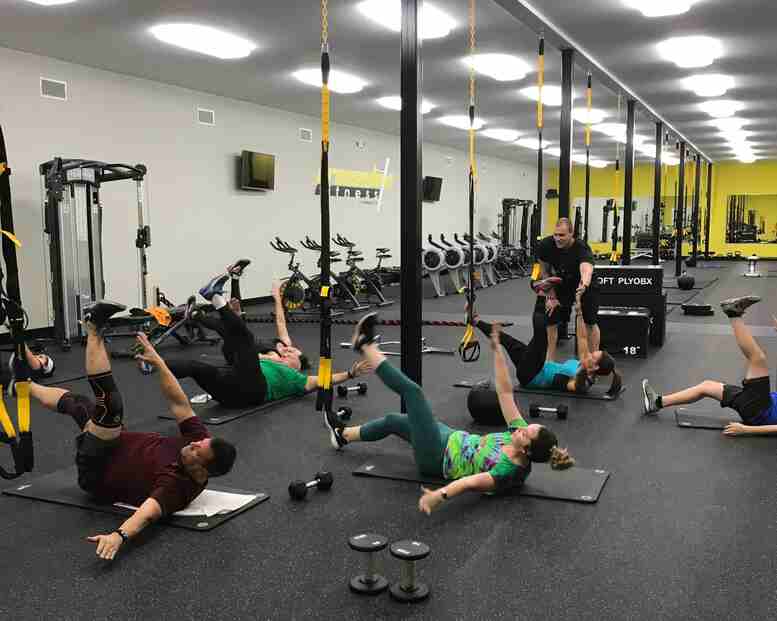

Finding a gym Lynchburg can feel overwhelming because there are so many options. But choosing the right one is very important for your fitness journey. A good gym will not only help you stay in shape but also keep you motivated. Many people struggle to work out alone at home, so joining a gym can make a big difference. When searching for gyms Lynchburg contact Crosswhite Athletic Club it is important to find a place that has everything you need. You want a gym with great equipment, friendly trainers, and fun workout programs. Also, the right gym should make you feel welcome and comfortable. A clean space with a positive atmosphere will help you enjoy your workouts. If you are looking for a gym that offers all these things, contact Crosswhite Athletic Club today. It is the perfect place to start your fitness journey and reach your health goals.
What Makes a Gym Great?
Not all gyms are the same. Some have only basic machines, while others provide advanced equipment and personal training. A great gym should offer a mix of workout options so that people with different goals can benefit. It should also have a supportive environment where beginners feel comfortable. Clean spaces, friendly trainers, and well-maintained machines make a gym even better. When searching for gyms in Lynchburg, it is essential to find a place that meets these needs. Additionally, a gym should provide group classes, weightlifting areas, and cardio machines. This way, you can try different exercises and stay motivated. Many people stop working out because they get bored. But a gym that offers a variety of workouts can help keep things exciting. If you want a place that has everything, Crosswhite Athletic Club is the perfect choice. It is designed to help everyone enjoy fitness and reach their goals.
Why Choose Crosswhite Athletic Club?
If you want a gym that offers everything in one place, Crosswhite Athletic Club is a great choice. It is not just a regular gym—it is a fitness center built for people of all fitness levels. The club has modern exercise machines, expert trainers, and exciting workout programs. Whether you are a beginner or an athlete, you will find the right exercises here. Additionally, the gym is known for its welcoming environment, making it easier for members to stay motivated. Unlike some gyms that focus only on machines, Crosswhite Athletic Club offers personalized training and group sessions. This means you can get the support you need while working out. Also, the club is clean and well-maintained, ensuring a safe and comfortable experience. If you are searching for gyms in Lynchburg, this gym is an excellent option. Contact Crosswhite Athletic Club today and start your journey toward better health.
Variety of Fitness Programs Available
People have different fitness needs. Some want to lose weight, while others want to build muscle or improve flexibility. That is why a good gym should offer various workout options. At Crosswhite Athletic Club, there are many programs to choose from. You can take part in strength training, cardio exercises, and yoga. There are also sports activities like tennis, which add more fun to your routine. Additionally, group fitness classes make workouts more enjoyable and help keep you motivated. If you prefer one-on-one guidance, the gym has personal trainers who can create a plan just for you. When searching for gyms in Lynchburg, finding a place with different programs is important. This way, you can try new workouts and avoid getting bored. If you want a gym that keeps exercise fun and exciting, Crosswhite Athletic Club is the perfect choice.
A Friendly and Supportive Environment
The environment of a gym plays a big role in keeping members motivated. A good gym should not only provide great equipment but also create a welcoming space where everyone feels encouraged. At Crosswhite Athletic Club, the trainers and staff are always ready to help. Whether you are a beginner or an experienced athlete, you will receive the support you need. Additionally, the gym has a friendly community where people motivate each other to do their best. Many people feel nervous when they first join a gym, but a positive atmosphere makes the transition easier. This is why so many people looking for a gym in Lynchburg choose this club. Also, the staff ensures that all machines are safe to use, creating a stress-free workout experience. If you want a gym that helps you stay motivated and feel comfortable, Crosswhite Athletic Club is the right place.
Family-Friendly and Community-Focused
A gym should not only focus on individuals but also provide opportunities for families to stay active together. At Crosswhite Athletic Club, the fitness center is designed to be family-friendly. The gym offers activities for kids, sports training, and wellness programs for all ages. This makes it a great choice for parents who want to set a healthy example for their children. Additionally, working out as a family can be a fun way to bond and stay fit together. The club also has a strong sense of community, where members encourage and support each other. Many gyms only focus on workouts, but Crosswhite Athletic Club goes beyond that by creating a place where people connect and grow. If you are searching for gyms in Lynchburg, this club offers a unique experience that is perfect for individuals and families alike.
How to Get Started at Crosswhite Athletic Club
Starting at a new gym should be simple and stress-free. At Crosswhite Athletic Club, new members can visit, take a tour, and meet the trainers before deciding to join. This helps you feel comfortable and understand what the gym has to offer. Additionally, the club provides different membership options to fit various needs. Whether you want full access to all facilities or prefer specific classes, there is a plan for you. If you are searching for gyms in Lynchburg, you should check out this gym to see what makes it special. Also, the staff is always available to answer questions and help you find the best workout plan. Many people put off joining a gym because they feel unsure, but this club makes the process easy. If you want to start your fitness journey, contact Crosswhite Athletic Club today and begin a healthier lifestyle.
Final Words
Choosing the right gym is the first step toward a healthier life. A great gym will not only help you stay in shape but also keep you motivated and excited about working out. If you are looking for a gym in Lynchburg, Crosswhite Athletic Club is the perfect place for you. With top-quality equipment, expert trainers, and a welcoming environment, this gym has everything you need. Additionally, the variety of workout programs ensures that you will never get bored. Whether you are new to fitness or an experienced athlete, this club offers something for everyone. Plus, the supportive community makes workouts more enjoyable. Instead of waiting, take action today! Contact Crosswhite Athletic Club and explore the amazing facilities for yourself. The best time to start your fitness journey is now, and this gym is ready to help you achieve your health goals.
-



 Biography7 years ago
Biography7 years agoJacqulyn Elizabeth Hanley is the Mother of Liza Soberano?
-



 Biography7 years ago
Biography7 years agoAmanda Levy Mckeehan Biography, Family, Net Worth, Age, Affairs, Facts
-



 Home6 years ago
Home6 years agoEpson L3110 Driver Free Download Latest Updated Version
-



 Games5 years ago
Games5 years agoBest Free To Play MMORPG To Try This 2021
-



 Biography7 years ago
Biography7 years agoWho is Rose Dorothy Dauriac? Scarlett Johansson Daughter?
-



 Home7 years ago
Home7 years agoLiza Soberano Biography, Age, Family and Boyfriends
-



 Biography7 years ago
Biography7 years agoJessica Ditzel Secret Information that Nobody Knows | Joe Rogan’s Wife
-



 Biography7 years ago
Biography7 years agoWhat is the relation of Nathaniel Larry Osorno with Liza Soberano?







